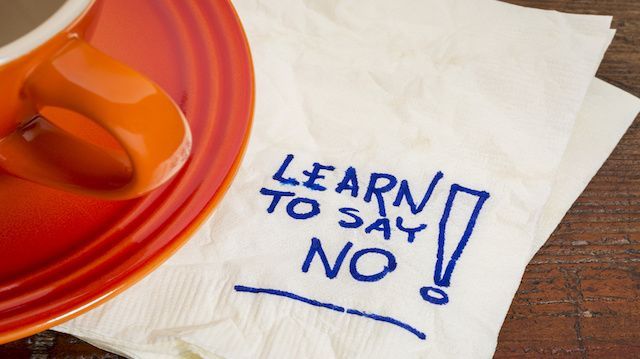
The modern world is one of fast paces, tight deadlines and late-night social interactions. If you’re like most of us, you live a crazy life, juggling work pressures with social commitments, family obligations and a myriad of other tasks and responsibilities.
Considering that the average person works 40 hours a week and is required by the laws of health to sleep 56 hours a week, that leaves a measly 72 hours to do everything else you need to sufficiently function within society — nurture a family, interact with friends, exercise regularly, complete chores, and pursue hobbies and passions. That’s really not much time at all when you think about it.
As a result, it’s highly likely that you live by your calendar, seeking to seamlessly schedule in every single task, chore and rendezvous around your workday so that not a moment is wasted. And while this seems like the most efficient way to approach life, it often leaves you feeling overwhelmed and run-down. Sometimes the healthiest thing you can do for yourself is to simply say “no.”
The word “no” seems so simple, but it can be surprisingly difficult to say. Studies indicate that people frequently agree to more than we actually desire because we would rather feel overburdened and low on time than disappoint someone. According to Dr. Vanessa Bohns, assistant professor of management sciences at the University of Waterloo, this comes down to fundamental need for social connection and a yearning to feel like we belong. Bohns maintains that “saying ‘no’ feels threatening to our relationships and that feeling of connectedness.”
The repercussions of this lack of social restraint are significant. By overcommitting ourselves, we are expending all of our energy and vitality resources and literally draining ourselves of life. This detracts from our natural character and strength, leaving us tired and meeting every day like it’s just another struggle. We sacrifice our own needs for space, stillness, relaxation and creativity, and become a slave to our inability to say “no.”
To avoid this, you have to be aware of your own requirements for both mental and physical health and happiness. You need to know when saying “yes” will compromise your need for rest, relaxation or personal development. When you do this, your irrational fear of social outfall from saying “no” will pale in comparison to the benefits you’ll reap by passing just this one time.
Here are three reasons why saying “no” is good for you.
You’ll have more time
You’d be surprised how much time you’ll free up by occasionally declining an invite to a party or a lunch date. It may only equate to a few hours, but you can use those hours to take a step back and do something just for yourself — this could be relaxing on the couch or in a hot steaming bath with a good book, writing that book you’ve always wanted to write or simply taking time to intentionally relax.
The additional time created by sometimes saying “no” will, at least temporarily, stop that imaginary clock from ticking and finally make you feel like you’re on top of things. This can really help to alleviate chronic stress and support your health.
You’ll be less regretful
This might seem a trifle backward, as initially you might be hesitant to say “no” for fear of missing out. In reality, however, if you want to say “no,” chances are you have much better reasons for not being there. Think about it — your friend invited you to have some drinks with her and some of her colleagues after work. You don’t really want to, but you say “yes” anyway because you haven’t seen her for a while and don’t want her to think that you’re a snob.
You go along to the drinks but don’t really enjoy yourself because you keep thinking about all the other things you could be doing right now. You go home at the end of the evening feeling tired, out-of-pocket and like you wasted four free hours of your busy schedule. Saying “no” like you wanted to in the first place would have prevented you from feeling this regret.
Your peers will respect you for it
Nobody wants to be a pushover, but if you keep saying “yes” to every request or opportunity, that’s exactly how people will come to see you. The more you say “yes,” the more people will come to expect things of you, which could lead to a descent in social status and a personal loss of power over others.
Saying “no” when it counts will change all that. The people who count, or who really care about you, will come to respect you for it. It will show that you know what you want and you’re not afraid to cringe away from a little social awkwardness. And if some don’t respect you for it, you may not need them in your life if they get offended by a polite refusal!
The point is, saying “no” doesn’t always have to be a negative thing. The next time you’re presented with an opportunity or invitation that clashes with your personal needs or desires, don’t be afraid to say what you really think.
Finally brought yourself to say “no” and don’t know what to do with the extra time? Here are 50 ways to relax and de-stress so you can use your time wisely and support your health.
—Liivi Hess
Liivi is an Integrative Nutrition Health Coach and is training to become a doula. She inspires women to find peace and personal power by taking control of health and fertility naturally. Liivi‘s passion is ancestral nutrition and primal lifestyle design. She and her partner Will live between Toronto, Canada and Queenstown, New Zealand.
Source:
http://www.wsj.com/news/articles/SB10001424052702303795904579431093572107898

